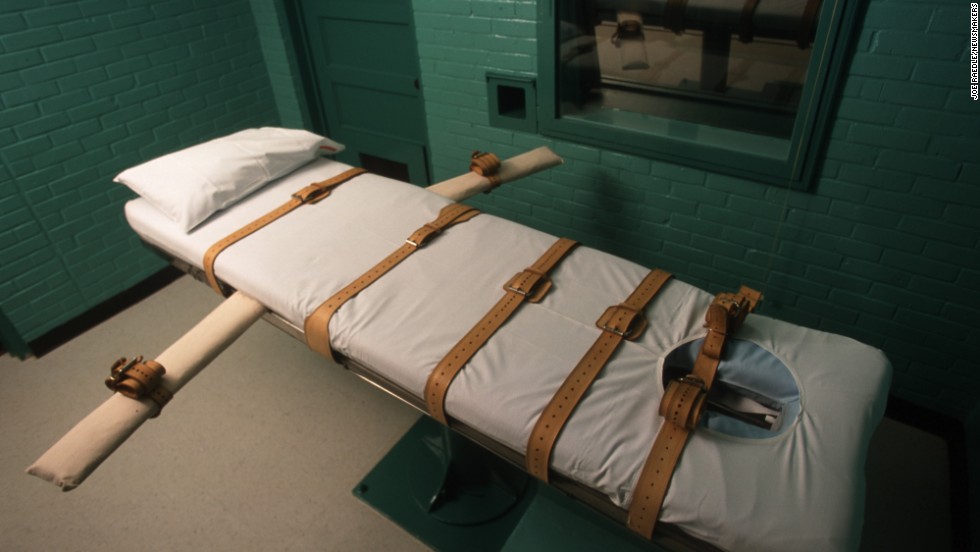Edmund Zagorski, 63, was sentenced to death for the 1984 murders of two men. His execution is scheduled for Thursday at 7 p.m. (local time).
He requested electrocution on the eve of his original execution date in early October because the state uses a controversial drug in lethal injections.
Zagorski's attorneys argued the lethal injection would make him spend the last 10 to 18 minutes of his life in "utter terror and agony" while the electric chair would only cause him "excruciating pain for (likely) 15-30 seconds," court documents show.
Despite the decision, Zagorski's attorneys said he was forced into a "terrible choice," arguing that electrocution though "relatively fast" is also "dreadful and grim."
The legal battle over his execution continues.
Zagorski's attorney, Paul Bottei, said he is still asking the US Supreme Court on Wednesday to delay the execution.
The nation's high court declined to hear Zagorski's case in early October.
Zagorski was moved for his final three days to a cell adjacent to the execution chamber at Riverbend Maximum Security Institution in Nashville. He chose pickled pig knuckles and pig tails for his last meal, the department of corrections said Wednesday.
Why is the electric chair an option?
Nine states have death by electric chair as an alternative to lethal injection. In 2014, Tennessee became the first state to make use of the electric chair mandatory when lethal injection drugs are unavailable.
By Tennessee law, any person convicted of a capital offense before January 1, 1999, may choose electrocution.
Zagorski began his sentence in March 1984 and the state's prosecutors have argued "the statute also gives the Tennessee Department of Correction the authority to promulgate rules to carry out the election (of electrocution instead of lethal injection)."
The state has only used the electrocution method once since 1960.
Daryl Holton -- who killed his three young sons and his ex-wife's daughter -- chose to die by the electric chair in 2007.
Before Holton's execution, Tennessee had not used the electric chair in 47 years.
The electrocution protocol is practiced monthly by the execution team and public records indicate the chair was tested in February, the Tennessean newspaper reporter.
After Zagorski chose the electric chair, Gov. Bill Haslam issued a reprieve of 10 days to prepare for the execution.
"[T]his brief reprieve will give all involved the time necessary to carry out the sentence in an orderly and careful manner," the governor said in a statement.
If the execution moves forward, Zagorski would also become the first person in the United States put to death by electrocution in five years. In 2013, Virginia killed a man convicted of two murders.
What's wrong with lethal injection?
The legal case surrounding Zagorski's method of execution has moved through the court system for months and initially was focused on the lethal injection.
In July, Zagorski joined more than 30 death row inmates who sued the state over the use of midazolam -- one of three drugs the state uses in lethal injections.
After months of appeals, the state's Supreme Court ultimately rejected the inmates' challenge claiming they failed to prove there was an alternative to the drug available.
The use of midazolam remains controversial, as death penalty critics have long argued that it's not a painkilling anesthetic and that the condemned would feel tortuous pain from the drugs that come next.
The drug was used in several executions that were widely considered botched in 2014.
It was used in the execution of Joseph Wood, who took nearly two hours to die, and led Arizona to stop using midazolam. Earlier that year, another inmate, Clayton Lockett, had been injected with midazolam, but instead of becoming unconscious, he twitched, convulsed and spoke. The execution in Oklahoma was halted, but Lockett died after 43 minutes. In Ohio, Dennis McGuire gasped and convulsed for 10 minutes before dying.
In 2015, the US Supreme Court ruled that the use of midazolam in lethal injections is not a violation of the constitutional ban on cruel and unusual punishment.


No comments:
Post a Comment